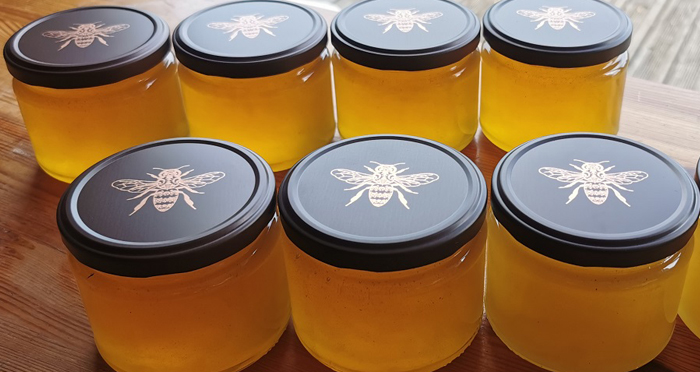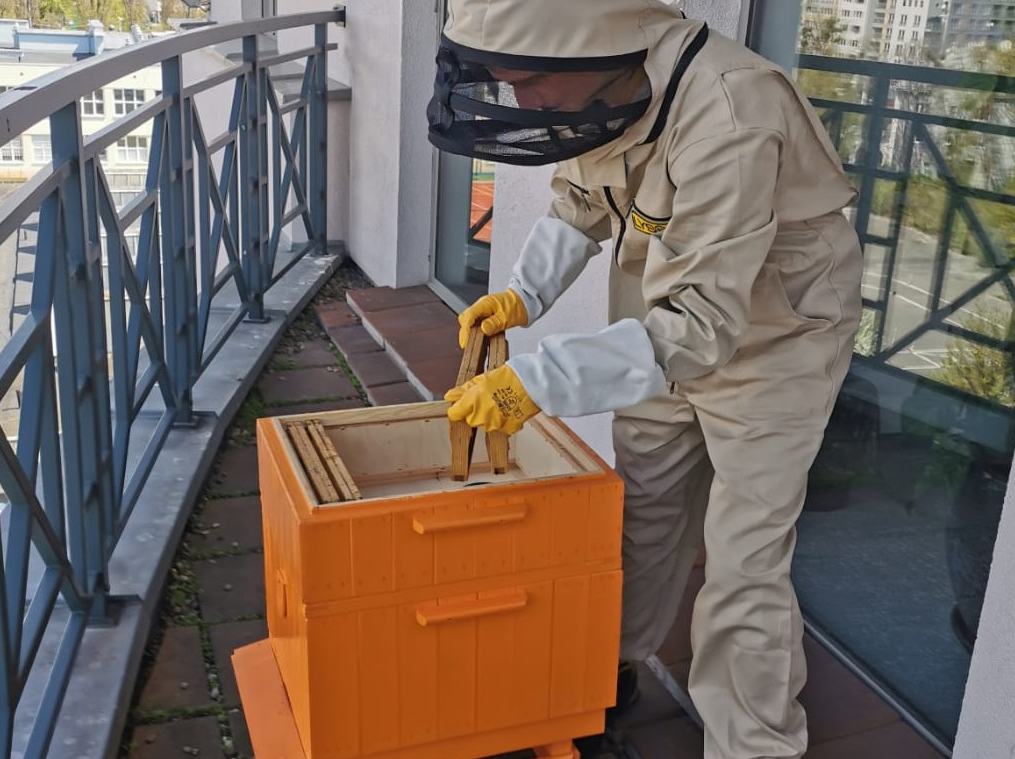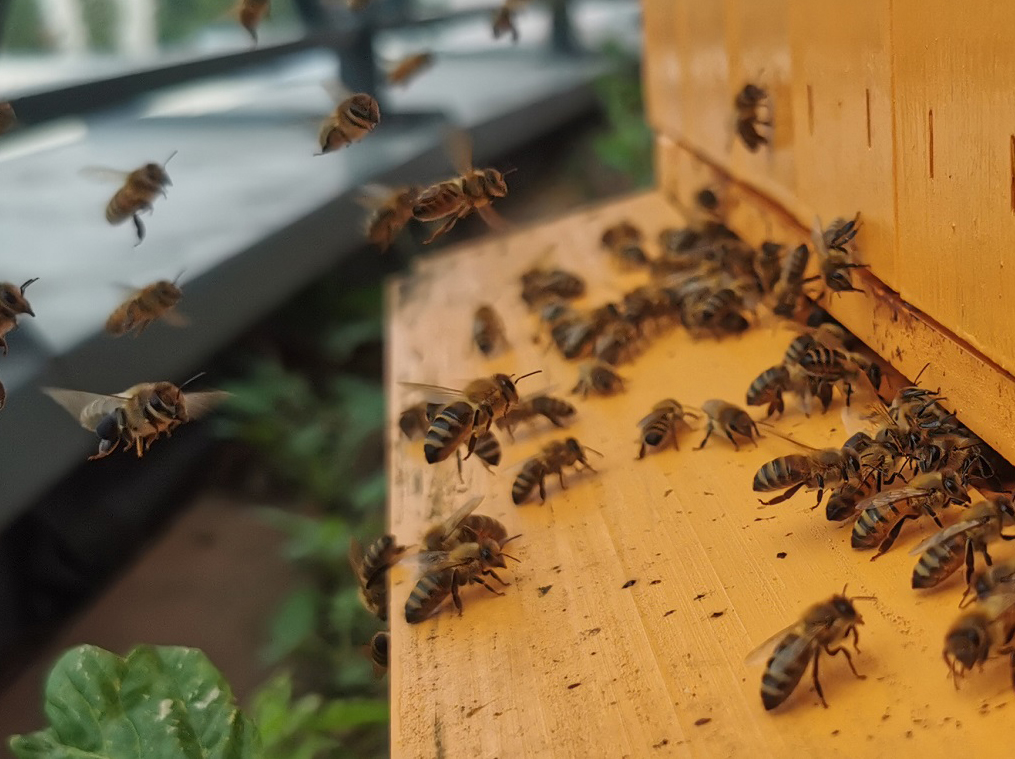HONEY


Beehives on UPL’s Poland balcony
Bees, bumblebees, and other insects perform one of the most important functions in the environment – they pollinate plants. Their work not only provides food for wild animals, ensuring the stability of the ecosystem, but also increases the size and quality of agricultural crops. Our industry conducts many educational campaigns for farmers to use plant protection products properly (after the bees fly out, so as not to cause poisoning) and to take care of biodiversity (supplying honey plant seeds, encouraging the establishment of flower meadows, etc.).
UPL Poland also decided to do something good for these little workers and place two beehives on the balcony of our office building. On this occasion, we provide knowledge about bees and their welfare on our social media profiles (the beekeeper provides us with information about life in the hives every week). Our activities are therefore aimed at educating and promoting biodiversity and is also an interesting phenomenon in the urban environment.
The establishment of urban apiaries is a new trend
The establishment of urban apiaries is a new trend that allows cities to develop in a more sustainable way. This is one of the best strategies to rebuild the population of pollinating insects, which support not only agriculture – in the agglomerations where they are bred, higher quality urban green areas and greater biodiversity are observed. Bees do not like monotony – in order to be able to do their job, they need food that is a mixture of pollen and nectars of various plants, so they feel very comfortable in cities due to the fact that they have access to a variety of food for a long time, in addition, the UPL office is located near the historic cemetery (43 hectares) with many species of honey plants. Our bees have produced about 200 kilograms of delicious honey last year, impressive, isn’t it? This year we have placed 6 more honey bee hives in our employees’ gardens to teach more people how to take care of them and spread the importance of their work. The honey that you will taste at the event come from UPL’s beehives.
